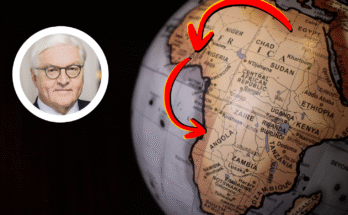Frances Coppola examines how a biblical tale of famine, taxation, and power reveals the roots of economic shock tactics and the perilous slide into repression.
Forget economic textbooks. Religion is back. It is driving social and economic policy even in supposedly secular states such as the mighty USA. Today’s economic advice comes from the Bible.
So, in the spirit of the times, here’s a Biblical economic fable. It’s the story of Joseph and the cattle. If you have a Bible handy, you’ll find it in Genesis chapters 41 and 47.
Joseph worked for the Pharaoh of Egypt. He wasn’t Egyptian himself: he was Hebrew, the son of Jacob and great-grandson of the patriarch Abraham. As a teenager, he had been sold into slavery by his charming brothers after some of them baulked at murdering him. There are some seriously dysfunctional families in the Bible.
Joseph was a clever man and an exceptional administrator. He quickly became his Egyptian owner’s trusted attendant. A sex scandal involving his owner’s wife led to him being briefly imprisoned, but the prison warder was so impressed with his abilities that he put Joseph in command of all the prisoners.
Joseph had another ability, too. He could interpret dreams. This was not always to his advantage: his interpretation of his own dreams had led to his brothers trying to murder him. However, in Egypt, interpreting dreams proved to be a winning strategy. Joseph interpreted the dreams of a couple of Pharaoh’s officials, in return for which he asked that they mention him to Pharaoh and secure his release from prison. They didn’t do it, of course. But a couple of years later, when Pharaoh was desperately looking for someone to interpret a plague of terrible dreams, one of them remembered Joseph.
Pharaoh dreamed that seven thin cows ate up seven fat cows, and seven thin ears of corn swallowed up seven fat ears of corn. Joseph explained this thus:
“The seven good cows are seven years, and the seven good ears are also seven years. The seven lean cows are seven years, and so are the seven worthless ears of corn. Seven years of abundance are coming throughout the land of Egypt, but seven years of famine will follow them. Then all the abundance in Egypt will be forgotten, and the famine will ravage the land.”
Saving during the good times to create a reserve buffer for the bad times. John Maynard Keynes would be proud.
And he gave Pharaoh some wise advice:
“Let Pharaoh appoint commissioners of the land to take a fifth of the harvest of Egypt during the seven years of abundance. This food should be held in reserve for the country, to be used during the seven years of famine.”
Saving during the good times to create a reserve buffer for the bad times. John Maynard Keynes would be proud.
The reserve buffer was to be built by imposing a tax on agricultural production. It was quite a hefty tax, too, at 20% of all non-perishable production. In practice, this meant products such as wheat, corn, and barley, which, under the right conditions, could be stored for an extended period. We might call it a “grain tax.”
The quote “Never waste a good crisis,” usually attributed to Churchill, might equally have been said by Joseph.
Pharaoh appointed Joseph to oversee the plan. When the famine duly arrived, Egypt – alone among all the countries in the region – was prepared. All the grain stores were full, and Joseph was confident that there would be more than enough to see the Egyptians through the lean times.
The quote “Never waste a good crisis,” usually attributed to Churchill, might equally have been said by Joseph. He used the grain stores he had built up in anticipation of famine to bring about a fundamental change in the organisation of society, not only in Egypt but throughout the region.
Eventually, Pharaoh owned all the land of Egypt, and all its people were in bonded servitude to him.
When the famine started, Joseph distributed food to the people of Egypt. But he didn’t distribute the grain for free. They had to pay for it. And as the famine ravaged the land for seven long years, food became more scarce and more valuable than gold. People sold everything they had to buy grain from Joseph – their livestock, their valuables, their land, and ultimately, themselves. Eventually, Pharaoh owned all the land of Egypt, and all its people were in bonded servitude to him. He had become their feudal overlord.
After the famine was over, Joseph gave the people seed to sow the land on the condition that they return 20% of the harvest to Pharaoh. Thus, the “grain tax”, introduced initially as a temporary measure to build a reserve buffer against an expected famine, became a permanent tax on production for domestic farmers. We may recall how income tax, initially introduced to finance a war with France, became a permanent feature of the British tax system. However, the God of the Bible is a more generous overlord than either Pharaoh or the British government. He only charges 10%.
It wasn’t just the people of Egypt who were so desperate for food that they sold their most precious possessions. Neighbouring countries did too. Pharaoh became the overlord of the whole region, and his neighbours paid him tribute. The famine – and Joseph’s preparation for it – had made him an Emperor.
Among those who came to Joseph to buy grain were Joseph’s brothers, who at that time were living in famine-struck Canaan. Joseph strung them along for a while – well, they had tried to murder him – but eventually not only gave them grain but encouraged them to move to Egypt with their elderly father. Pharaoh gave them some of the best land in Egypt. They settled there and built homes and farms. And as the years went by, the Israelites, as they were known, “multiplied greatly and became exceedingly numerous, so that the land was filled with them” (Exodus 1:7).
But favoured immigrants can all too easily become hated invaders.
But favoured immigrants can all too easily become hated invaders. After Joseph and his Pharaoh died, a new, populist Pharaoh came to power. “Look”, he said to the Egyptians, “the Israelites are swamping us! We need to stamp on them or they will take over!” He embarked on a campaign of brutal repression, imposing forced labour on the Israelites, and murdering their boy children to stop their numbers from increasing. Eventually, the Israelites were driven out, in one of the first recorded episodes of “voluntary” ethnic cleansing. We remember this as the Exodus from Egypt.
Pharaoh’s treatment of the Israelites should give us pause: the immigrants Britain welcomed in the past are now facing ever-harsher treatment from our own home-grown fascists.
The Bible isn’t an economics textbook, of course. This story is a fable, not a model. However, Bible stories like this serve as archetypes of economic and social problems that still plague us today. Joseph’s revolution ended, as most revolutions do, in imperialism, and Joseph’s favouritism bred toxic resentment, leading to the rise of fascism and the attempted genocide of an entire people.



